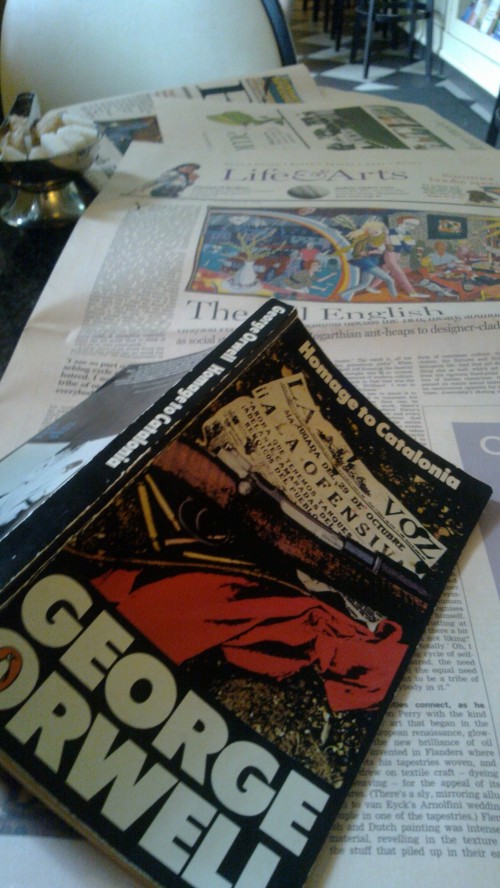2nd July 2013
Homage to Orwell
I’ve discovered that I might have a tendency to “Gladwellian” prose, as practised by Malcolm Gladwell, a Canadian-British journalist who wrote “The Tipping Point”. This is the reduction of complicated issues into simple terms.
I came across the term while reading a critique of the “plain and clear language” of George Orwell in the New Statesman, a magazine that Orwell had once written for. The author Ed Smith suggests that plain speaking is the current rhetorical style in Britain, and often used to hide difficult truths.
Perhaps. I understand what he means when he describes how people often frame their “plain speaking” thoughts with comments that are, on reflection, misleading. So the opening of: “I’ll be honest with you”, can mean the exact opposite.
This week is the 110th anniversary of Orwell’s birth. Orwell was one of the 20th century’s great writers. Animal Farm, his fable about communism, and 1984, his warning about the future, were among the most widely read books in the world.
His opposition to totalitarianism was profound. It came from his experiences of fighting in the Spanish Civil War, as he recounted in Homage to Catalonia. He later wrote that “every line of serious work that I have written since 1936 has been written, directly or indirectly, against totalitarianism and for democratic Socialism, as I understand it” (from Why I write, an article first published in 1946).

Orwell wasn’t the first to warn of the dangers of a totalitarian future. He acknowledged that 1984 was modelled on We, a novel by the Russian writer Yevgeny Zamyatin, first published in 1924 in an English translation. Orwell first read the novel in 1946.
Orwell was a strong believer in the clarity of writing. As he set out in his essay Politics and the English Language (the one that Mr Smith was questioning), he worried that writing on political subjects was often vague or insincere, because writers wanted to avoid or hide difficult truths. And the use of vague and misleading language could limit the capacity for critical thought.
Orwell was committed to clarity because he valued honesty above everything else. He was sometimes an awkward friend, who criticised sloppy and convoluted writing, regardless of the author. He wrote in the 1930s and 40s, when the political divisions and choices were probably clearer than they are today.
While Mr Smith may have a point about the use of plain language to divert, I’m not sure it negates the value of clear writing. Clear, understandable prose ensures you communicate a message effectively, as well as being a courtesy to readers.
Orwell’s six rules were:
Never use a metaphor, simile or other figure of speech which you are used to seeing in print.
Never use a long word where a short one will do.
If it is possible to cut a word out, always cut it out.
Never use the passive where you can use the active.
Never use a foreign phrase, a scientific word or a jargon word if you can think of an everyday English equivalent.
Break any of these rules sooner than say anything outright barbarous.
I try to follow them. Orwell himself wasn’t the best at following his own advice. The essay Politics and the English Language has lots of passive constructions.
Shakespeare wrote that brevity is the soul of wit. Long sentences, with unnecessary adjectives, adverbs, subordinate verbs and clauses, can be unclear and confusing. A good tip for all that Orwell might have endorsed: try to keep sentences to less than 20 words.
Indeed this article unique and very rich and has included history, literature, philosophyand policy
thanks
nice